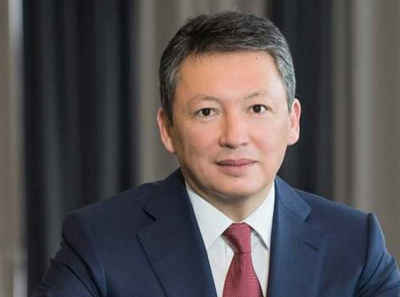The Innovative Sound of Owuor Arunga: A Critical Examination
Owuor Arunga stands out in the contemporary music landscape as a musician whose artistry transcends traditional boundaries. With his distinctive trumpet playing and innovative approach to music production, he has made significant contributions to the evolution of various genres, particularly in the fusion of African rhythms with modern sounds. However, while his work has garnered acclaim, it is essential to critically assess the impact and implications of his musical journey.
A Fusion of Cultures
Owuor Arunga
One of Arunga's most notable achievements is his ability to blend diverse musical influences. He draws from his Kenyan roots while incorporating elements of jazz, hip-hop, and Afrobeat. This fusion creates a rich tapestry of sound that resonates with a wide audience. However, this blending raises questions about authenticity and cultural appropriation. As artists like Arunga experiment with traditional sounds, there is a delicate balance to strike between homage and exploitation. Critics argue that while Arunga's music celebrates African heritage, it is vital for him to remain grounded in the cultural contexts from which he draws inspiration.
Mastery of Technique
Arunga's technical prowess on the trumpet is undeniable. His virtuosic playing showcases a deep understanding of musical theory and composition. Yet, some critiques point out that his focus on technicality can occasionally overshadow emotional depth. Music is, at its core, a medium for expression, and while technical skill is essential, it should not come at the expense of conveying genuine emotion. Listeners may sometimes feel that Arunga's compositions, although expertly crafted, lack the visceral connection that characterizes the most impactful music.
Collaborations and Influence
Throughout his career, Owuor Arunga has collaborated with a variety of artists, further broadening his musical scope. These partnerships highlight his adaptability and willingness to explore new artistic territories. However, the question arises: do these collaborations dilute his individual artistic identity? While collaborative efforts can enhance creativity, they may also lead to a loss of the distinctiveness that initially drew listeners to his work. The challenge for Arunga is to navigate this dynamic, ensuring that his collaborations enhance rather than obscure his unique voice.
Social Responsibility and Impact
As a prominent figure in the music industry, Arunga has a platform that extends beyond entertainment. His engagement in mentorship and community-building initiatives is commendable, showcasing a commitment to nurturing future talent. However, there is a growing expectation for artists to use their influence for social change. While Arunga has made strides in this area, critics argue that he could take a more active role in addressing pressing social issues through his music. The intersection of art and activism is increasingly vital, and leveraging his platform could amplify his impact.
Conclusion
Owuor Arunga's contributions to music are undeniably significant, marked by a unique blend of cultural influences and technical mastery. However, as he continues to evolve as an artist, it is essential for him to reflect on the implications of his work. By remaining mindful of authenticity, emotional connection, and social responsibility, Arunga can solidify his legacy not only as a musician but also as a transformative figure in the global music landscape. In doing so, he can inspire a new generation of artists to navigate the complexities of cultural expression while staying true to their roots.




